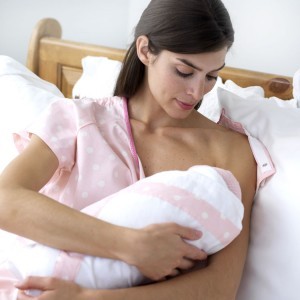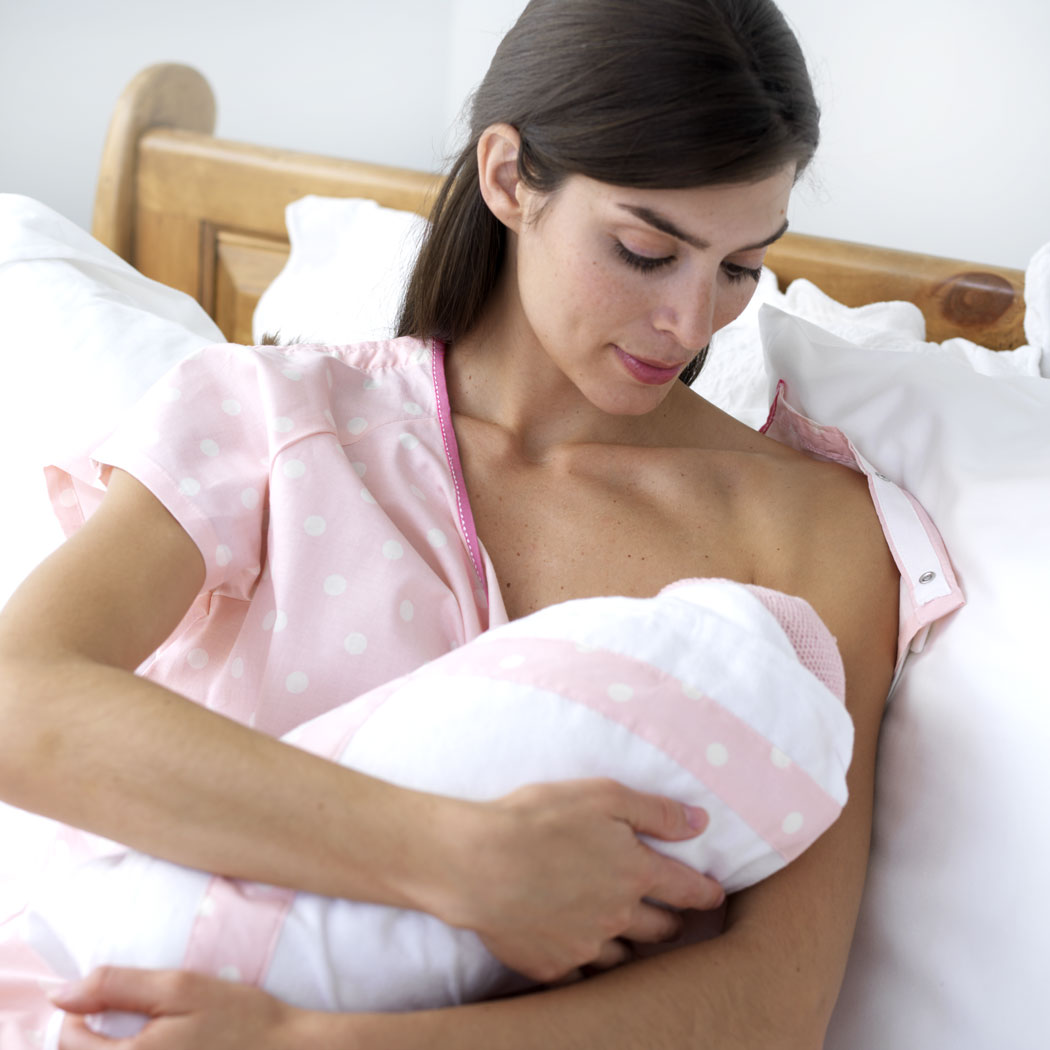 HSE National Breastfeeding Week starts today with this year’s theme is ‘Every Breastfeed Makes a Difference’.
HSE National Breastfeeding Week starts today with this year’s theme is ‘Every Breastfeed Makes a Difference’.
Five out of every 10 babies born in Ireland are being breastfed on leaving hospital.
This compares with eight out of every 10 in the UK. Across Europe on average nine out of every 10 babies born are breastfed, with almost all babies born in Norway, Denmark and Sweden being breastfed. By three months, four in 10 babies in Ireland are breastfed.
Breastfeeding protects the health of babies and their mothers and breastfeeding is important for healthy growth and development. It gives babies all the nutrients they need for the first six months of life and protects them against infection and disease.
Children who are not breastfed are more likely to develop:
§ ear, nose and throat infections,
§ gastroenteritis, kidney and chest infections,
§ asthma,
§ obesity and diabetes.
Breastfeeding is important for the health of children and mothers, with every breastfeed making a difference. The first few days of breastfeeding provide antibodies that give natural immunity and protect baby from infection. Colostrum contains nutrients and large amounts of antibodies to protect against infections. It is extremely easy to digest and protects baby’s digestive system.
Breastfeeding for the first two weeks, helps mums and baby to bond and establish feeding. Breast milk changes to meet baby’s needs and to provide all his nutrients. It protects baby’s digestive system and contains unique components which aid the immune system and protect from infection.
There is a direct correlation between the duration of breastfeeding and protection against many illnesses and infections with greater protection provided the longer a mother breastfeeds. Breastfeeding for the first month for example reduces the risk of respiratory tract infections by 27%, with every extra month of breastfeeding further reducing risk of illness from infections.
Any breastfeeding helps to reduce the risk of ear infection by 23%, with a risk reduction of 50% if breastfeeding continues for 3 months (7). Breastfeeding is associated with a 36% reduction in risk of SIDS compared to not breastfeeding.
Breastfeeding for at least three months is associated a reduced risk of asthma and diabetes. With a 40% reduction in risk of asthma in children where there is a family history and the risk of childhood Type One diabetes reduced by 27%.
Risk of hospitalisation from lower respiratory tract infection is 72% lower in infants who are exclusively breastfed for more than 4 months. Irish research has shown that children breastfed for 3-6 months have 38% less risk of obesity at age 9. Breastfeeding for 6 months or longer leads to 51% reduction.
Breastfeeding for at least six months is associated with a 19% risk reduction of childhood acute lymphocytic leukaemia and 15% risk reduction in childhood acute myelogenous leukaemia. Risks of chest infections, ear, nose and throat infections, gastroenteritis, and childhood obesity are all greatly reduced. Continuing to breastfeed while introducing small amounts of foods with gluten helps to protect against coeliac disease.
For mothers breastfeeding helps protect against ovarian and breast cancer as well as helping them to achieve and maintain a healthy post-pregnancy weight.
The HSE’s National Breastfeeding Co-ordinator Siobhan Hourigan emphasised the importance of support groups for breastfeeding Mums.
She said: ‘We know that breastfeeding is important for the health of children and mothers, with every breastfeed making a difference. But every breastfeed also brings a mum closer to her personal breastfeeding goals.’
She added: ‘’Many Irish mothers do not reach their breastfeeding goals and stop breastfeeding sooner than planned. We know support can help mums to breastfeed for longer. There are nearly 200 support groups throughout the county and contact details are available on www.breastfeeding.ie
Some mums plan to breastfeed for weeks, some for months and some for years. All breastfeeding is worthwhile and every breastfeed makes a difference.
Hourigan added: ‘‘I would encourage mums to try to breastfeed as long as you can. It helps to link with supports, to find out what to expect and to get help if you need it.’’
The Department of Health and HSE recommend exclusive breastfeeding of infants for the first six months, after which mothers are recommended to continue to breastfeed as solid foods are introduced for up to two years or beyond.
To mark National Breastfeeding Week there are events taking place across Donegal, including:
Event – Breastfeeding Challenge
When – Saturday 5th October 2013 10am – 12 noon (main event at 11am)
Where – Spraoi agus Sport, Carndonagh, Co. Donegal.
Contact –Helen, info@spraoiagussport.ie www.friendsofbreastfeeding.ie challenge@friendsofbreastfeeding.ie
Event – Breastfeeding Challenge
When – Saturday 5th October 2013 10am – 12 noon (main event at 11am)
Where – Letterkenny (TBC)
Contact – www.friendsofbreastfeeding.ie challenge@friendsofbreastfeeding.ie
Event – HSE Letterkenny General – Public Awareness Stand
When – Thursday 03 October 2013 12 noon – 3pm
Where – Letterkenny Shopping Centre
Event – La Leche League Donegal Town: Coffee Morning
When – Friday 4th October 2013 10am to 12 noon
Where – Abbey Hotel, The Diamond Donegal Town
Breastfeeding support groups are provided by HSE Public Health Nurses, La Leche League and Cuidiu – Irish Childbirth Trust around the country. Women can attend for support and the opportunity to meet other mothers. Other health professionals including Midwives, GPs, Practice Nurses and Dieticians also provide one-to-one information and support. For details of support in your county log on to www.breastfeeding.ie or call the HSE Infoline 1850 24 1850.
Breastfeeding support is also provided by voluntary organisations such as La Leche League www.lalecheleagueireland.com Cuidiú – Irish Childbirth Trust www.cuidiu.ie and Friends of Breastfeeding www.friendsofbreastfeeding.ie
Tags:








